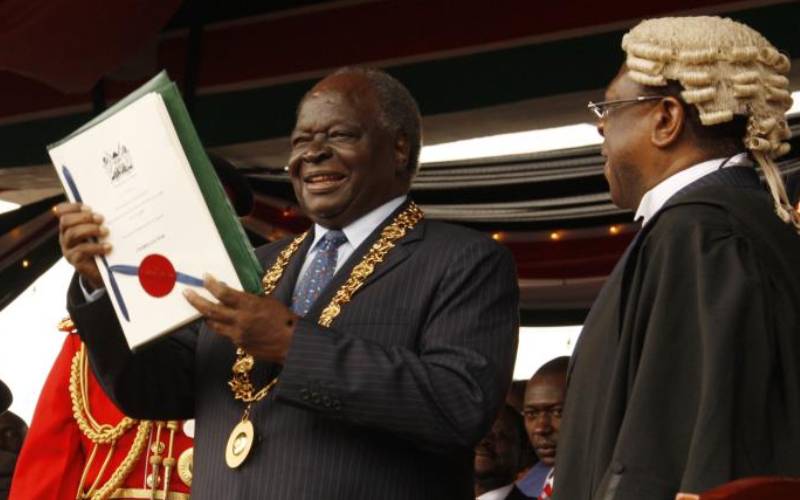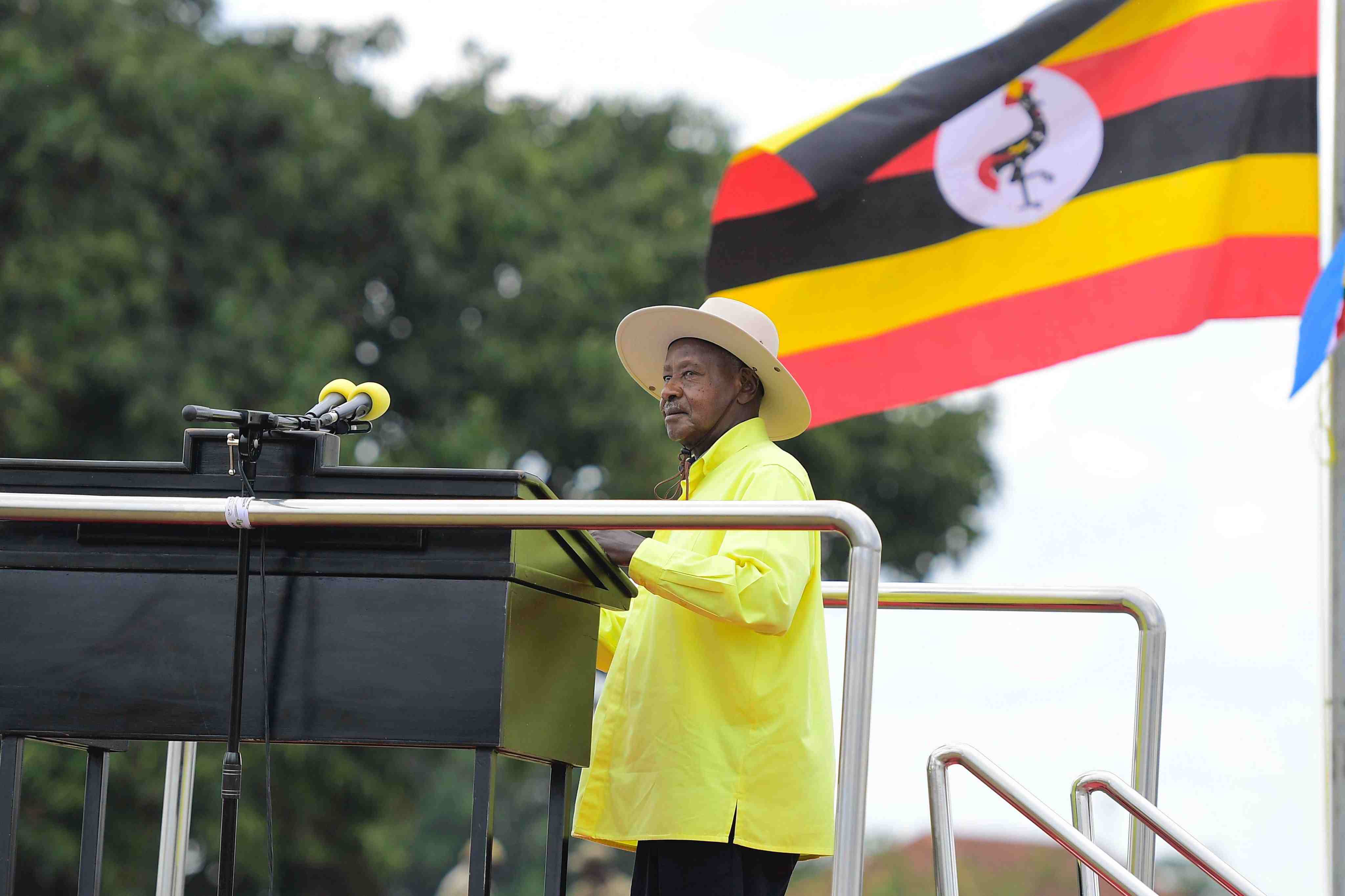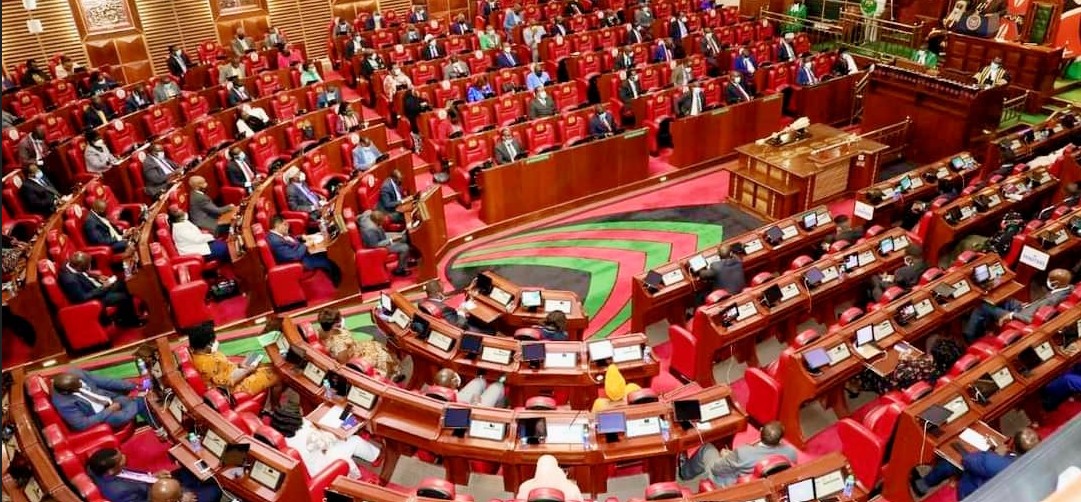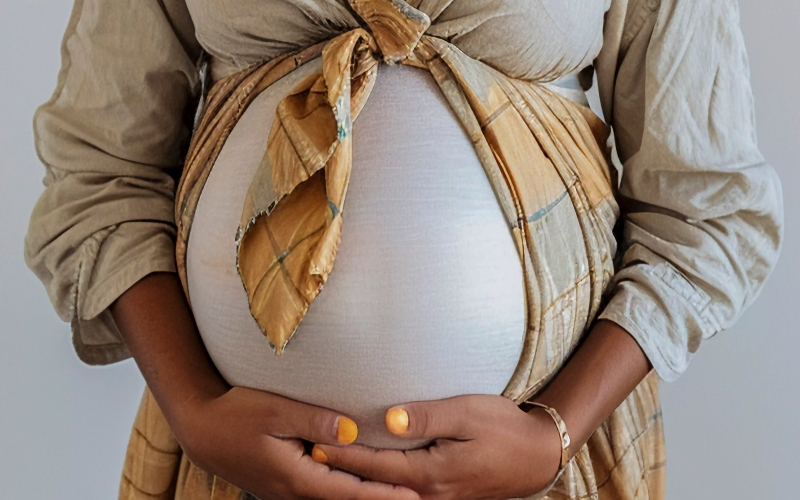Celebrating 14 years of Kenya's Constitution: Katiba Day

The 2010 Constitution introduced several notable changes aimed at improving governance and protecting citizens' rights
Katiba Day, observed annually on August 27th, holds great significance in Kenya as it commemorates the adoption of the country's 2010 Constitution. This day is a reminder of a transformative period in Kenya's history, reflecting the nation's dedication to democratic values, good governance, and human rights.
Kenya's previous Constitution, inherited from the colonial period and adopted in 1963, served the country for decades.
More To Read
- Why Ruto declined to gazette Katiba Day as a public holiday
- KHRC, civil rights organisations highlight governance failures on Katiba Day
- Raila slams IEBC, NPS and DPP, says they have failed Kenyans despite 2010 Constitution gains
- Four judges removed, 210 staff sacked for misconduct since promulgation of 2010 Constitution - CJ Koome
- CJ Martha Koome hails 2010 Constitution as transformative, cites gains and challenges 15 years on
- President Ruto declares August 27 Katiba Day to commemorate 2010 Constitution
However, by the late 1990s and early 2000s, it became increasingly clear that it was insufficient for addressing the needs of a growing and diverse nation.
During this time, Kenya faced significant political and social issues, including corruption, human rights abuses, and an over-centralisation of power.
The old Constitution's limitations became apparent, and there was a widespread call for a comprehensive review to address these challenges and create a more inclusive and effective framework for governance.
The push for constitutional reform began to gain traction with the establishment of the Constitution of Kenya Review Commission (CKRC) in 2000. Led by Professor Yash Pal Ghai, this commission was tasked with gathering public input and drafting a new Constitution.
The process was marked by extensive consultations with citizens across the country, reflecting a broad-based desire for change.
Despite the effort, the reform process faced numerous challenges, including political resistance and disagreements over the proposed changes. A draft Constitution was presented and put to a national referendum on November 21, 2005. The draft was narrowly rejected, demonstrating the need for further dialogue and compromise.
Following the 2005 referendum, efforts to reform the Constitution continued, gaining new momentum after the 2007-2008 post-election violence. This violence highlighted the urgent need for structural reforms to address governance issues, electoral processes, and ethnic tensions.
In 2008, a new coalition government was formed, and the National Accord included a commitment to constitutional reform. This led to the formation of the Committee of Experts on Constitutional Review, which drafted a revised Constitution incorporating lessons from past attempts.
The final draft of the 2010 Constitution was approved in a referendum on August 4, 2010, with a significant majority in favour. The new Constitution was celebrated as a transformative document designed to tackle long-standing issues and promote a more democratic and inclusive governance structure.
The 2010 Constitution introduced several notable changes aimed at improving governance and protecting citizens' rights. One of the most significant changes was the establishment of a devolved system of government. This reform created 47 counties, each with its government and elected officials, bringing governance closer to the people and promoting regional development.
The Constitution also expanded the protection of individual rights, including economic, social, and cultural rights. It enshrined fundamental freedoms such as freedom of speech, assembly, and association.
In addition, it introduced a more robust system of checks and balances among the executive, legislative, and judicial branches of government to prevent the abuse of power and ensure accountability.
Judicial reforms were another important aspect, with the Constitution restructuring the judiciary to enhance its independence and efficiency. New judicial institutions, including the Supreme Court, were established to oversee the administration of justice. Electoral reforms were also introduced to improve the electoral process and ensure more transparent and fair elections.
Other Topics To Read
As Kenya observes Katiba Day, various organisations are hosting events across the country to celebrate and reflect on these constitutional changes.
At Ufungamano House, the Kenya Christian Professional Forum (KCPF) will host a significant event featuring prominent speakers including Faith Odhiambo, President of the Law Society of Kenya; Joshua Okayo, President of the Kenya School of Law; and Jeremiah Karanja, CEO of ICS Kenya.
In Dandora, the Social Justice Centers' travelling theatre will host the "Kiwake Festival," an event dedicated to celebrating the Constitution's impact on social justice and human rights. This festival will feature discussions and performances, with key speakers such as former Chief Justice Willy Mutunga and Martha Karua.
Tribeless Youth will organise the "Uwazi Festival" in Nakuru, focusing on the theme "Access to Information for Sustainable Democracy."
As Kenya commemorates Katiba Day, it is important to reflect on the progress achieved under the 2010 constitution while acknowledging the challenges that remain. The constitution has led to significant reforms, including the decentralization of power and improvements in the protection of human rights.
However, there are still obstacles to fully realising its promises. Issues such as corruption, inequality, and inefficiencies in governance continue to require attention and action.
Top Stories Today













































